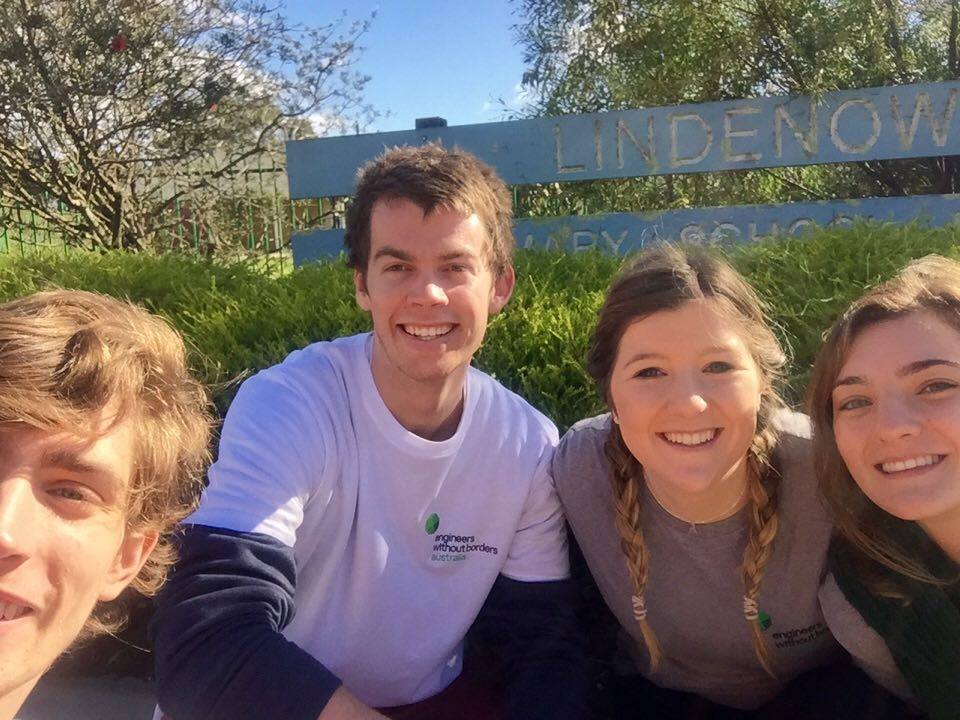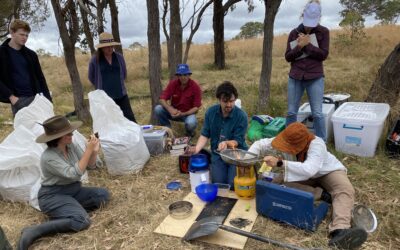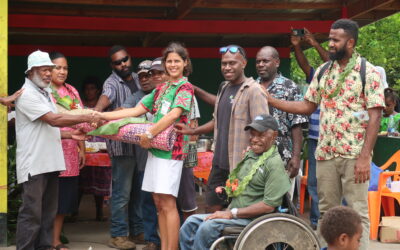Join our HQ
Support our staff in the delivery of programs and initiatives through our summer placements program as well as project-based opportunities.Students volunteer with EWB because they are passionate about creating a positive change in the world – and they are a vital part of the work we do. Throughout the year we offer opportunities for our EWB network to work alongside our National Office team – either at our office or remotely. It enables our committed volunteers to learn more about EWB’s work, support staff in the delivery of programs and initiatives, build our community, and further develop your individual capabilities in the sector.
Summer Placements
Connect with your University Chapter to participate in events and grassroots volunteering activity.
Project Volunteering
Support in the delivery of programs and initiatives through our summer placements as well as project-based opportunities.
FAQ'S
Inspire F-12 students to explore a future in STEM by delivering workshops in the classroom.

Summer Placements
EWB hosts volunteering places over the Australian summer period, Nov-Feb, for a 12-week period. Our summer volunteering opportunities suit tertiary students and recent graduates who have actively engaged with EWB Australia through their university or local EWB Chapter, and who seek to further build EWB knowledge and capabilities, increase their understanding of humanitarian engineering and community development, develop workplace skills and experience, and contribute to positive social impact.
Summer volunteers work alongside our staff and fellow volunteers at our national office in Footscray, Victoria, with computer-based work. Based in our open-plan, light-filled, co-tenanted working space, you’ll become a part of our friendly team and join in on our regular activities (such as weekly team lunches), participate in meetings, and be a part of the annual Making an Impact Summit in December. Selection of Summer volunteers is by written application and interview. Please note that volunteer work is voluntary and unpaid. Volunteers from around Australia are welcome, but will need to make their accommodation arrangements.
- Tertiary students and professionals interested in community development, humanitarian engineering and creating impact through positive social change.
- Demonstration of genuine engagement with EWB Australia is desired, as we seek volunteers who strongly align with EWB’s values and mission, and can demonstrate this through active participation, such as volunteering with your local EWB Chapter (add link to Local Chapter page).
Purvi – should we create a graphic for this timeline?
Mid Sep: applications open
Early Oct: applications close
Mid-late Oct: interviews held
End Oct: applicants notified of outcome
Early Nov: successful applicants confirm acceptance of offer
Late Nov: half-day induction workshop; internship commences
Early Dec: involvement in Making An Impact Summit
Christmas/New Year period: EWB office closure
Late Feb: internship concludes
Project Volunteering
Throughout the year EWB offers volunteering opportunities to work on specific project-based work – and you don’t need to be an engineer! Our project volunteering roles are either based in our national office or remotely, with project work focused on various disciplines, including research, marketing, communications and content, education, training, human resources, finance, business administration, and our many international and australian programs. EWB Australia is currently seeking volunteers for the below projects.
Keen to volunteer but we don’t have the perfect role for you right now? Please add your details to our VOLUNTEER ROSTER, to be notified of future projects. LINK TO COME.
Roles will go here.
NOTE. This page will also be linked from the other volunteer pages, ie PROFESSIONAL, ACADEMIC, NON-GINEER – all project volunteers roles will be listed on this page.
Stories of Student Volunteering
Exploring opportunities for native plants at the ‘Nguluway’ Local Design Summit
The cultivation of native grains through careful land management was once central to Aboriginal life. However, following colonisation, the shift to European foods and farming methods damaged native grasslands and reduced biodiversity.
At Nguurruu farm, 40 minutes north of Canberra, Murray Prior is working with Ngambri custodians to implement regenerative farming practices and revive native foods and land management. Farming practices at Nguurruu are informed by Indigenous knowledges and seek to restore biodiversity and reverse ecological damage.
The second iteration of the EWB ACT Chapter’s ‘Nguluway’ Local Design Summit, held earlier this year in collaboration with Nguurruu farm, gave university students and industry professionals a firsthand insight into regenerative farming practices on Country.
Drones, disasters and design – new STEM outreach for regional classrooms
It’s a sad reality: regional students all too often miss out on important educational opportunities that their peers in the city get to enjoy. When it comes to STEM outreach, many programs are run out of capital cities, which means regional school students can easily...
A climate resilient and community-led solution to sanitation challenges in Vanuatu
For environmental activist David Kalsal, fishing and swimming in the Emten Lagoon on Vanuatu’s Efate Island has always been a part of local life for him and his family. In recent years however, the lagoon has also become an indicator of how climate change and sanitation challenges are impacting his community.
The Erakor Bridge community lies on the edge of the Emten Lagoon and is home to approximately 200 residents. The community consists of low-lying areas with a high groundwater table, meaning the area is especially vulnerable to cyclones and frequent flooding during periods of heavy rainfall. As a result of flooding and inadequate household sanitation systems, swimming and fishing is no longer safe for the community due to high levels of e.coli bacteria detected in the lagoon.




